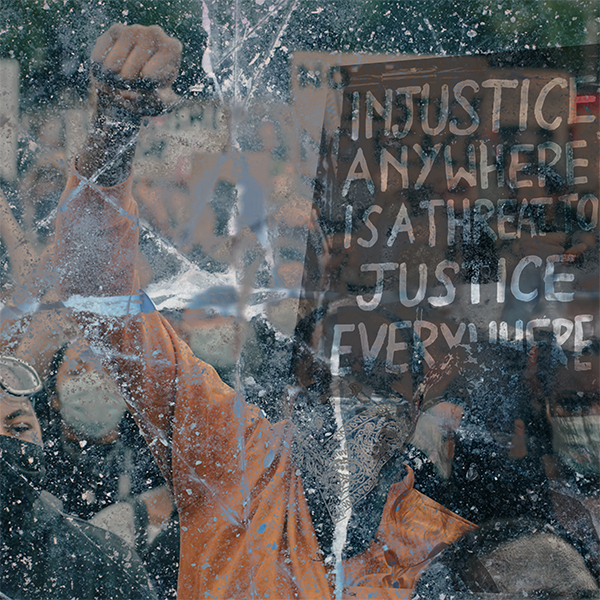Why Christians Need to Stop Endorsing ALL Candidates
For many, this election year has already been one of the most difficult to bear in recent history. But the significant question is why it has been so difficult. It is a question of considerable theological and pastoral consequence, so Christian leaders need to be able to speak to this.
The reason most people would give for their frustration thus far usually has something to do with either disbelief that Donald Trump is actually the Republican nominee, or anything from distrust to disgust regarding all things Hillary Clinton. For these folks, though, there is probably another candidate that they would like to have as president, and the election of this candidate would leave them at least somewhat satisfied.
This has led a large number of voters to simply settle for whatever they judge to be the less disliked candidate of the two. Presumably, this would explain why a surprising number of evangelical Christians seem to still be willing to back Trump. The biggest frustration for me as a Christian, however, has come not so much with evangelicals who support Trump, but more so with the way that Christians everywhere seem to be so caught up in the business of endorsing and evaluating candidates in general — because “this election is different,” or because “stopping Trump (or Hillary) is so important.”
Whatever the justification, I believe Christians are taking these candidates much too seriously. The mistake we make is that we are meeting them on their own terms rather than our own. Let me explain.
Whatever the justification, I believe Christians are taking these candidates much too seriously. Share on XThe Failure of Christian Witness through both Endorsement and Denouncement
Yes, Wayne Grudem’s moral argument in favor of voting for Trump is bewildering, and Eric Metaxas’s defense of Trump is even more troubling. The latter should confirm, if there was ever any doubt, that Metaxas is no authority on Dietrich Bonhoeffer.
But what about the many Christians who are making the case for Hillary? The Rev. Dr. William Barber gave what was maybe the most powerful speech (sermon?) at the Democratic National Convention this year. And yet, he was still endorsing Hillary Clinton. Furthermore, Rachel Held Evans, for example — a good writer and a voice I appreciate — she too has called for support of Clinton. She even described her as an “extremely qualified but unpopular” candidate. Evans is well aware that there are problems with voting for Hillary Clinton. Nonetheless, I find this tacit approval of Clinton’s political record cringe-worthy, for reasons I will outline in “part 2” of this post. (Evans’ post was mainly about abortion, actually, and how she believes Clinton is in fact the better candidate for pro-life voters like herself to support).
What these examples reveal, I think, is that the political theology of most Christians continues to be such that public advocacy for as well as denouncement of a major party candidate of a global super power is seen as both faithful and necessary. This has nothing to do with being progressive or conservative. And I include denouncement because, insofar as it remains a speech act on the same plane as an endorsement, the level of discourse isn’t changed by it. It just tries to move in the opposite direction.
It reminds me of how, when asked why he would not support reform within the German state church, Bonhoeffer replied, “If a train is on the wrong track, it does no good to get on board and run the other way.” Not that the United States and Germany are equal by comparison, but I believe the analogy stands. (And keep in mind that Bonhoeffer went on to get his hands dirty and made the ultimate sacrifice for his plot against Hitler).
The point is this: There is nothing inherently Christian about supporting or denouncing either of the candidates this year or any candidate in U.S. politics. Yet ostensibly Christian endorsements and denouncements persist on both sides.
There is nothing inherently Christian about supporting or denouncing presidential candidates. Share on XA Web of Systemic Sin
It’s important to stress, therefore, that as Christians, we do not necessarily object to the endorsement of a candidate like Hillary Clinton because we think she is so terrible, or because we think Christians absolutely mustn’t vote for her. Whether she is immoral, dishonest or beholden to the status quo is somewhat irrelevant. The president is still limited by an imperfect web of systemic sin and moral gridlock, even if he or she is the most influential person in that web. It’s what Reinhold Niebuhr called the dilemma of Moral Man and Immoral Society. This will continue regardless of who is elected. And so actually, I agree with Evans that Clinton is indeed very “qualified” — qualified to lead the web of systemic sin that is the U.S. government.
To be clear, this is not to say that as Christians we shouldn’t vote. But I’m also not saying that we must! The point is, there’s a difference between voting for a candidate, one the one hand—perhaps reluctantly—and using one’s Christian platform to fervently ask people to vote for him or her, on the other hand. The latter betrays the emptiness of a Christendom political imagination. It doesn’t matter whether we are talking about mainline liberals or evangelicals. Both have this problem.
Liberals and evangelicals both suffer from the emptiness of a Christendom political imagination. Share on XInstead, as William Cavanaugh argues in his book, Migrations of the Holy:
The political task of the post-Christendom church is to suffer rulers as faithfully as possible . . . not merely to make policy recommendations to the state, but to embody a different sort of politics, so that the world may be able to see a truthful politics and be transformed . . . Without seeking to rule, the church has more to contribute precisely because it is the bearer of God’s politics, and because it is catholic, transnational, transcending the parochial borders of the nation-state” (pp. 138-9).
What remains to be explained here though still is 1) why this view is preferred for Christians compared to the more popular political theology of “realism” (not necessarily Reinhold Neibuhr’s “Christian realism”), and 2) how pastors and committed disciples can show other Christians what it looks like to care about politics on our own terms. Both of these things will be taken up in the second part of this post.



